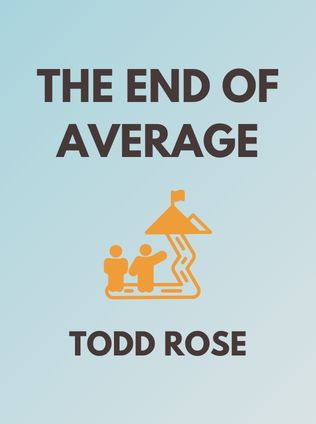
The End of Average
How We Succeed in a World That Values Sameness
By Todd Rose
Published 01/2016
About the Author
Todd Rose is not just an academic; he is a revolutionary thinker who challenges the status quo. With a background in developmental psychology, Rose has spent years studying the intricacies of human individuality and how societal structures often fail to accommodate this uniqueness. He served as a professor at Harvard University, where his research focused on the science of individual differences, and he has authored several groundbreaking books. These include "Dark Horse", where he explores the power of non-conformity in achieving success, and "Collective Illusions", which examines how our perceptions of societal norms are often misaligned with reality. His work is deeply rooted in the belief that the conventional reliance on averages and standardization is not only flawed but also damaging to human potential.
In 2012, Rose co-founded Populace, a think tank dedicated to building a world where people can flourish by leveraging their unique strengths. His mission is to dismantle the societal structures that enforce conformity and to advocate for systems that celebrate and enhance individual differences. Rose’s insights are not just theoretical; they have practical implications for how we design our educational systems, workplaces, and broader societal institutions. His work challenges us to rethink our reliance on averages and to embrace the rich diversity of human capabilities.
Main Idea
"The End of Average" is a manifesto against the tyranny of averages. Todd Rose argues that our obsession with averages—whether in education, the workplace, or society—leads to systems that stifle individuality and limit human potential. He contends that the concept of the "average person" is a myth, and that by designing our systems around this false notion, we are doing a disservice to both individuals and society as a whole. Rose's central thesis is that we must move away from one-size-fits-all approaches and instead create systems that are flexible and adaptable to individual differences.
Rose’s argument is rooted in both historical analysis and contemporary research. He traces the origins of our reliance on averages back to the industrial era, where efficiency and standardization were paramount. In this context, the average became a convenient measure for designing processes and systems that could be easily replicated. However, Rose argues that this approach is no longer suitable in today’s world, where innovation, creativity, and individual strengths are key drivers of success. He proposes a new paradigm, one that recognizes the uniqueness of each person and designs systems that allow for this individuality to flourish.
Table of Contents
- Introduction
- The Flaws of Averages in Education
- The Harmful Impact of Averages in the Workplace
- Moving Beyond the Average
- Case Studies and Practical Applications
- Conclusion
The Flaws of Averages in Education
The education system is perhaps the most glaring example of how the reliance on averages can be detrimental. From the moment a child enters school, they are subjected to a system designed to measure them against a standard that does not actually exist. This standard, often represented by test scores, grade point averages, and other metrics, is based on the idea of the "average student." Rose argues that this concept is fundamentally flawed and that it fails to account for the vast diversity of human learning styles, abilities, and interests.
Rose delves into the historical roots of this approach, explaining that the modern education system was designed during the industrial revolution to sort students into categories—those who were deemed intelligent and capable were funneled into higher education and eventually into leadership roles, while those who did not meet these arbitrary standards were relegated to more menial tasks. This sorting mechanism was based on the assumption that intelligence is a fixed trait that can be measured and quantified. However, Rose challenges this notion, arguing that intelligence is not a single, uniform quality but rather a complex interplay of various skills and abilities.
Sign up for FREE and get access to 1,400+ books summaries.
You May Also Like
The Subtle Art of Not Giving a F*ck
A Counterintuitive Approach to Living a Good Life
By Mark MansonRich Dad Poor Dad
What the Rich Teach Their Kids About Money - That the Poor and Middle Class Do Not!
By Robert T. KiyosakiHow To Win Friends and Influence People
The All-Time Classic Manual Of People Skills
By Dale CarnegieFreakonomics
A Rogue Economist Explores the Hidden Side of Everything
By Steven D. Levitt and Stephen J. DubnerI Am Malala
The Story of the Girl Who Stood Up for Education and Was Shot by the Taliban
By Malala Yousafzai



















